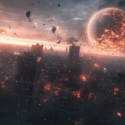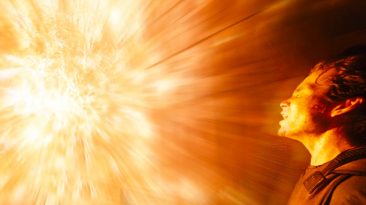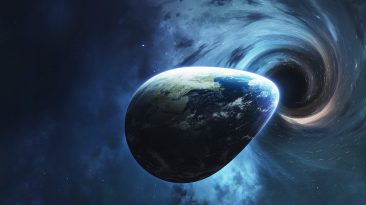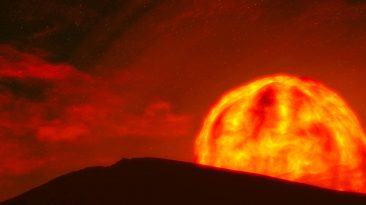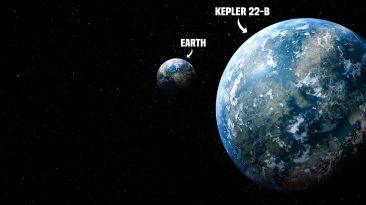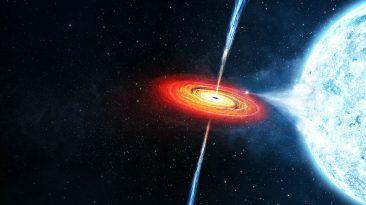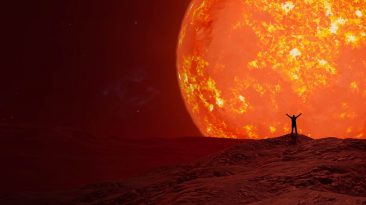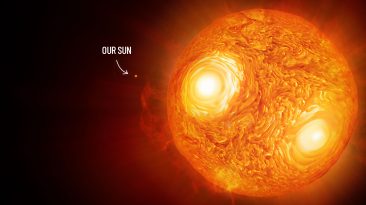What would happen if you took the most energetic light source in the Universe and smashed it into a massive gravitational monster? Well, you might reverse the flow of time. How would this scenario unfold? How could this affect time as you know it? And what would happen if you got too close?
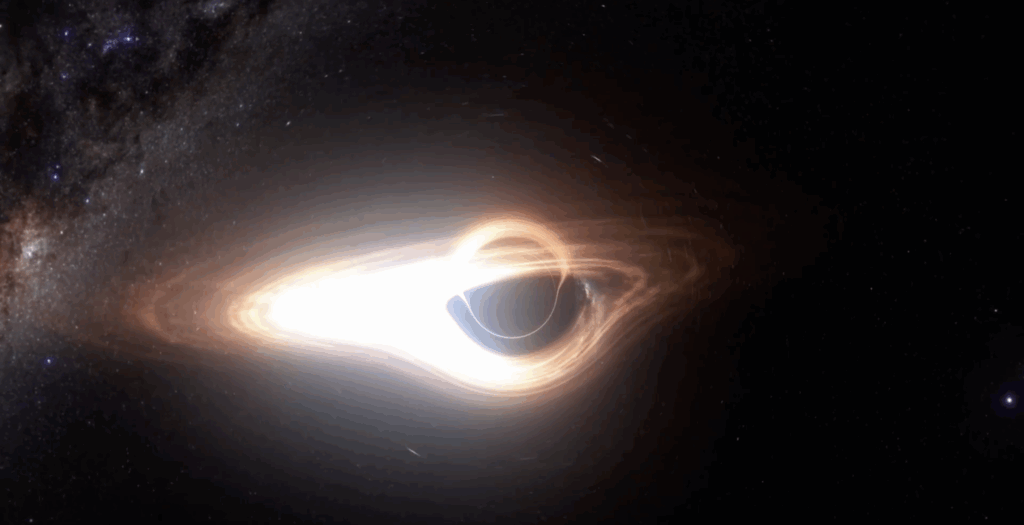 Meet your first fighter. A black hole. Not so different than your average object with mass. Except that it’s extremely dense. Most black holes are the remnants of massive stars. And they have a lot of gravity. The mass of this black hole is compressed to a point called a singularity. At this infinitely small point in the center, conceptions of space and time break down.
Meet your first fighter. A black hole. Not so different than your average object with mass. Except that it’s extremely dense. Most black holes are the remnants of massive stars. And they have a lot of gravity. The mass of this black hole is compressed to a point called a singularity. At this infinitely small point in the center, conceptions of space and time break down.
Today’s challenger is a gamma-ray burst. Not so different than your average burst of visible light. Oh yeah. Except way more energetic. Gamma-ray bursts are the strongest and brightest explosions in the Universe. In one second, gamma-ray bursts emit as much energy as the Sun will emit during its entire 10-billion year lifespan.
So if these two powerful phenomena collide, would space and time cease to exist? There are a couple of things you should know before we get underway with our space-time obliterating cage match. The first is that our two contenders already interact pretty often. A black hole releases a burst of gamma-ray light when it is created.
This burst spreads out evenly in all directions across the Universe. So some of these gamma rays will certainly encounter another black hole or two. And these gamma-ray bursts happen about once a day. They could flash for less than two seconds. Or they could last up to 30 seconds.
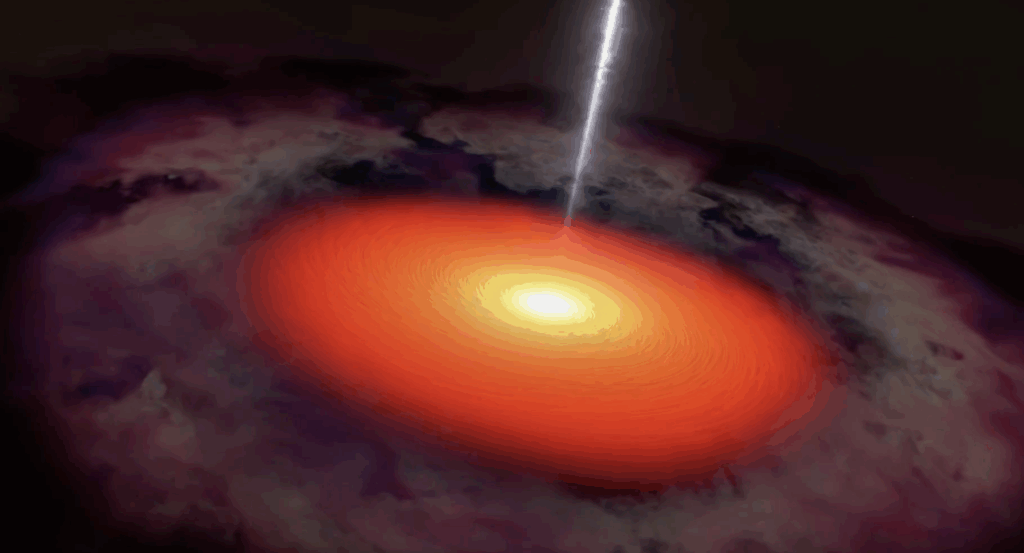
The difference is whether the burst results from two neutron stars colliding to form a black hole or whether it’s the result of a star collapsing directly into a black hole without a supernova explosion. So if you managed to observe these phenomena, would you witness a magnificent explosion about a million trillion times brighter than the Sun?
Not quite. While some photons have just the right amount of frequency to be visible to your eyes, the frequency of gamma rays is way too high. Your eyes aren’t advanced enough to see their beautiful bursts. But if you could see them, this insane amount of light would probably leave you blind. But surely this explosion must be loud, right? Once again, I come bearing bad news.
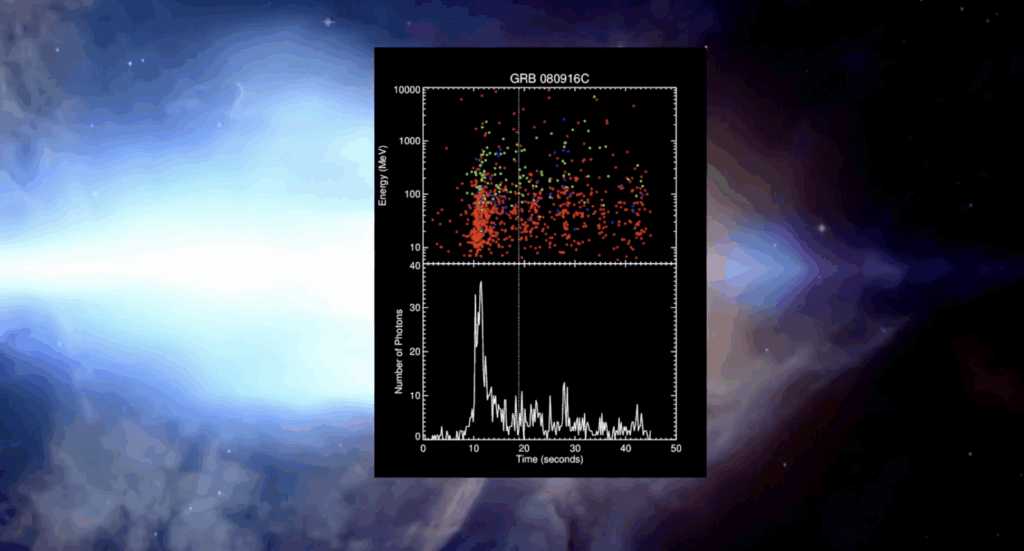
It would technically sound like nothing. Sound doesn’t travel in the vacuum of space. It needs a medium with particles to carry sound waves. But thanks to the scientists at NASA, a gamma-ray burst would sound a little something like this. Ok, not exactly like this. These beautiful cello and piano notes translate the gamma-ray frequencies into musical notes. Pretty mellow for such a massive explosion, right?
But if you were close to this explosion, things would be anything but mellow for you. Gamma rays are hazardous. They can penetrate lead, concrete and certainly whatever spacesuit you’d be wearing. As they passed through your body, they’d deliver an extremely high dosage of radiation. You’d suffer radiation sickness. You’d become nauseous, lose your hair and even bleed.
The energy could damage your tissue and your DNA, leading to cancer. Or worse, death. The gamma rays could cook you from the inside out. So you’d want to back up a little bit. Or better yet, reverse time. In 2018, researchers observing gamma-ray burst pulses found that some events repeated themselves in reverse. That’s right. It was as if they were moving backward.
So what does this mean for you? Did you just stumble onto a way to travel back in time? Again, I have some bad news. This is merely an optical phenomenon. Light has the fastest speed in the Universe. But this is only true for the speed of light traveling through empty space. In other mediums, like water, it would be possible for electrons to travel faster.
That means if gamma rays could travel faster than the speed of light, they would give the illusion of reversing time. So yeah, it’s possible I oversold you a bit on the idea that if a gamma-ray burst collided with a black hole, it would result in the brightest, loudest, time-destroying explosion of all time. In some ways, it’s all true. But until our Sun collapses into a black hole and sends a burst of gamma rays in your direction, you don’t have to worry.
Sources
- “What Exactly Is A Black Hole Event Horizon (And What Happens There)?”. Charles Q. Choi. 2019. space.com.
- “What If Planet Nine Is A Baby Black Hole?”. Paul Sutter 2021. livescience.com.
- “What Is A Gamma-Ray Burst?”. Adam Mann. 2020. space.com.
- “Imagine The Universe! – Gamma-ray Bursts”. 2022. imagine.gsfc.nasa.gov.
- “Radiation Basics | US EPA”. 2014. epa.gov.





